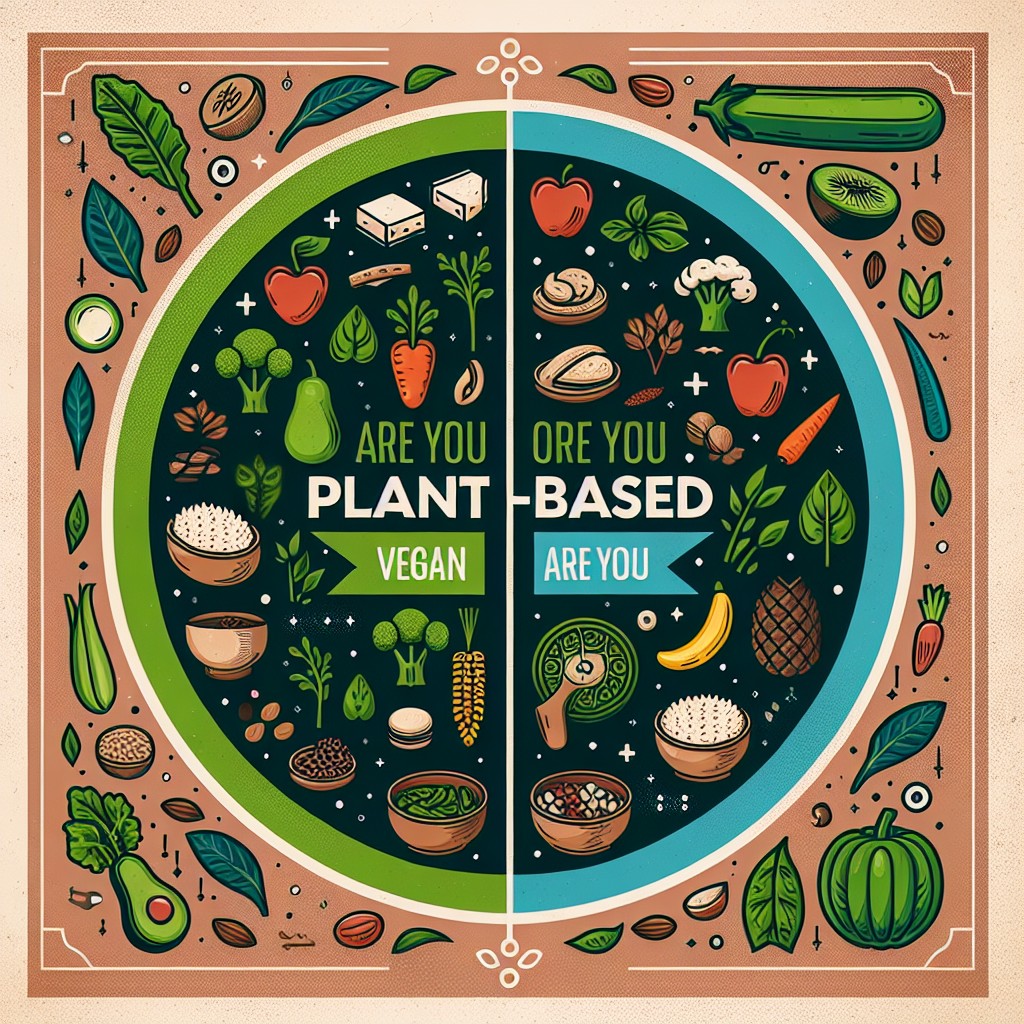As the world embraces a more conscious and sustainable lifestyle, the terms "vegan" and "plant-based" have become increasingly popular. While they may seem interchangeable, there is a subtle yet profound difference between the two. In this article, we will unravel the distinction between being vegan and being plant-based, shedding light on the philosophies and dietary choices associated with each.
Let's start by defining what it means to be vegan. Veganism is a lifestyle choice that seeks to exclude all forms of animal exploitation and cruelty. Vegans eliminate the consumption of animal products, such as meat, poultry, fish, dairy, eggs, and honey, from their diets. Additionally, they extend this philosophy to other aspects of their lives, avoiding all products derived from animals, including leather, fur, and cosmetics tested on animals.
Veganism is often driven by ethical considerations, aiming to promote kindness and compassion towards animals. Many vegans choose this lifestyle as a way to protest against the industrialized and inhumane treatment of animals in factory farms and other industries. They also believe that animal agriculture is environmentally unsustainable, contributing to deforestation, water pollution, and greenhouse gas emissions.
On the other hand, the term "plant-based" refers specifically to a dietary choice rather than a comprehensive lifestyle. Plant-based individuals primarily consume foods derived from plants, such as fruits, vegetables, grains, legumes, nuts, and seeds. Unlike vegans, plant-based individuals may occasionally consume small amounts of animal products, such as meat or dairy, but these are not a significant part of their diet.
Plant-based diets are often adopted for health reasons. Research has shown that a diet rich in plant-based foods can contribute to lower risks of chronic diseases, such as heart disease, diabetes, and certain types of cancer. By focusing on whole, unprocessed foods, plant-based eaters aim to maximize nutritional intake while minimizing the intake of saturated fats, cholesterol, and artificial additives found in many animal-derived products.
While veganism and plant-based diets overlap in their exclusion of animal products, the motivations behind these choices differ. Vegans prioritize animal welfare and reject all forms of animal exploitation, while those following a plant-based diet are primarily concerned with personal health and nutrition. However, it is important to note that the lines between the two can blur, and some individuals may identify with both labels.
It is worth mentioning that adopting either a vegan or plant-based lifestyle can have positive impacts on the environment. Reducing meat and dairy consumption, even if not eliminated entirely, can help conserve natural resources, reduce greenhouse gas emissions, and promote sustainable agricultural practices.
In terms of practicality, embracing a vegan lifestyle may require more dedication and effort, as it involves scrutinizing labels, researching product origins, and being mindful of potential hidden animal-derived ingredients. Plant-based diets, while still conscious choices, may allow for more flexibility and variety, as long as the focus remains on plant-based foods.
Ultimately, the choice between being vegan or plant-based is a personal one, guided by individual values and goals. Whether you prioritize animal rights, environmental sustainability, or personal well-being, both options can lead to a healthier and more harmonious relationship with food and the natural world.
In conclusion, the difference between being vegan and being plant-based lies in the scope of their dietary choices and lifestyle philosophies. Vegans abstain from all forms of animal exploitation in all aspects of life, while those following a plant-based diet primarily focus on consuming plant-derived foods for health reasons. Regardless, both choices have the potential to create positive change for animals, the environment, and personal well-being. The most important thing is to make informed decisions that align with your values and promote a more sustainable future.

Share This Article
More Articles You Might Like
Discover More Content
Explore our collection of articles across various topics and categories. From cutting-edge technology insights to wellness wisdom, we curate the best stories to expand your horizons.
Article ID: 167